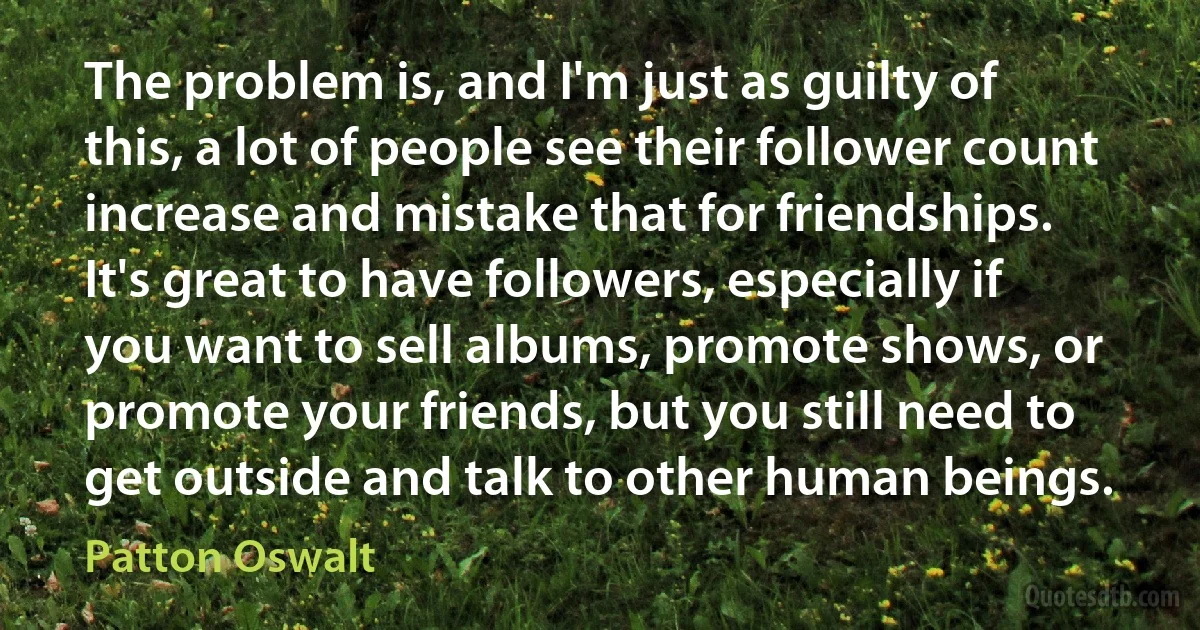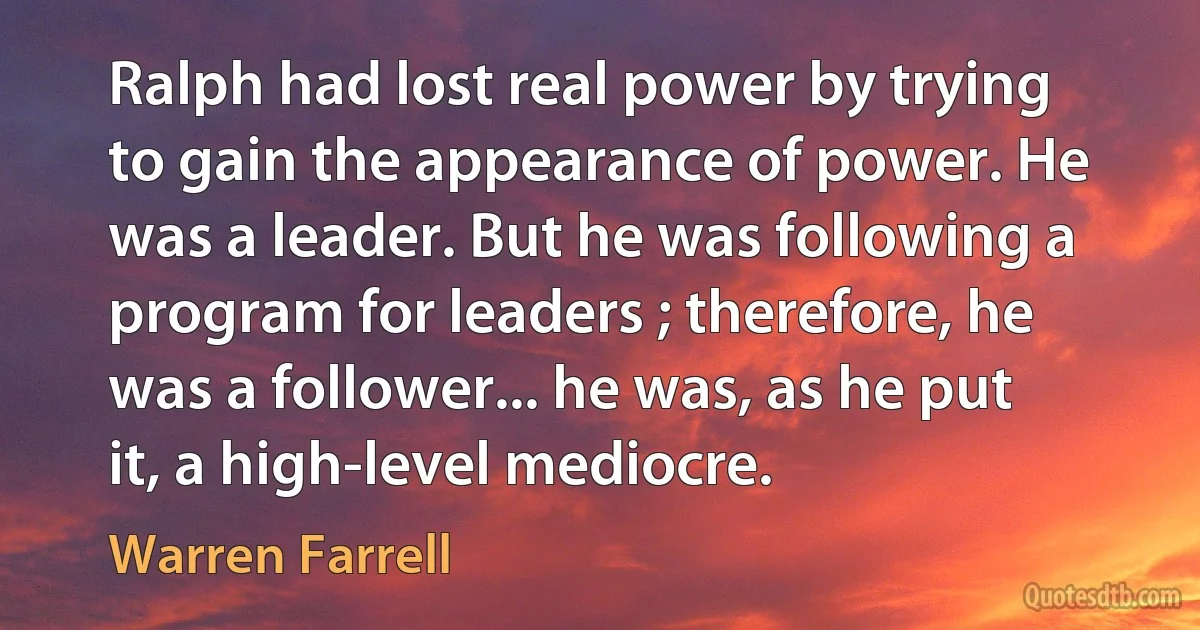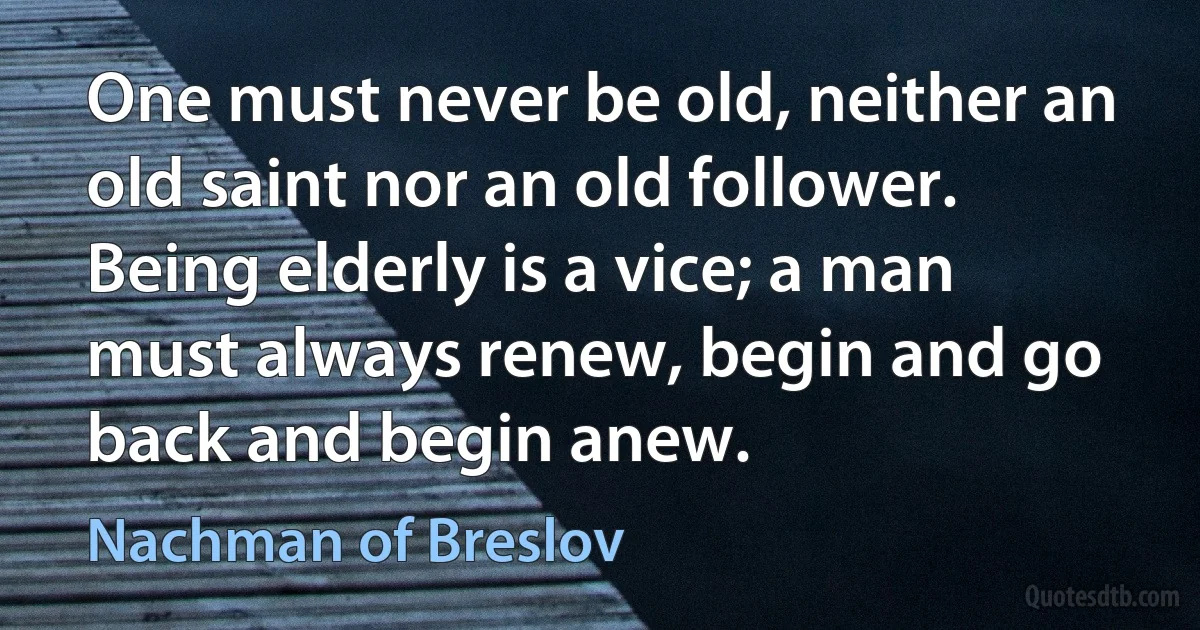Follower Quotes - page 4
A great god is Ahuramazda, who created this excellent thing which is seen, who created happiness for man, who set wisdom and capability down upon King Darius. ... By the grace of Ahuramazda I am of such a sort, I am a friend of the right, of wrong I am not a friend. It is not my wish that the weak should have harm done him by the strong, nor is it my wish that the strong should have harm done him by the weak. ... To the man who is a follower of the lie I am no friend. I am not hot-tempered. What things develop in my anger, I hold firmly under control by my thinking power. ... What a man does or performs, according to his ability, by that I become satisfied with him.

Darius I of Persia
The most significant change in the games themselves is the addition of 'Follow the Follower' (p 62), a variation on the 'Mirror' game in which no one initiates and all reflect. This game quiets the mind and frees players to enter a time, space, a moment intertwined with one another in a non-physical, non-verbal, non-analytical, nonjudgmental way.

Viola Spolin
... if you rejoice in revenge, torture, and war [...] you cannot say you're a follower of the guy who explicitly said "love your enemies" and "do good to those who hate you". The next line isn't, "And if that doesn't work, send a titanium-fanged dog to rip his nuts off". Jesus lays on that hippie stuff pretty thick! He has lines like, "do not repay evil with evil", and "do not take revenge on someone who wrongs you."

Bill Maher
What makes a good follower? The single most important characteristic may well be a willingness to tell the truth. In a world of growing complexity leaders are increasingly dependent on their subordinates for good information, whether the leaders want to hear it or not. Followers who tell the truth and leaders who listen to it are an unbeatable combination.

Warren Bennis
I was permitted to work for many years of my life under the greatest son whom my people has brought forth in its thousand year history. Even if I could, I would not want to erase this period of time from my existence. I am happy to know that I have done my duty, to my people, my duty as a German, as a National Socialist, as a loyal follower of my Führer. I do not regret anything. If I were to begin all over again, I would act just as I have acted, even if I knew that in the end I should meet a fiery death at the stake. No matter what human beings may do, I shall some day stand before the judgment seat of the Eternal. I shall answer to Him, and I know He will judge me innocent.

Rudolf Hess
Enlightenment can't be pursued or sought after. [...] Truth is here now; no past, no future. People are unenlightened only because they believe in the truth of the past and therefore must look to the rewards of the future. To be enlightened, to return to the original state of life on earth, requires action now in the present with no reference to the past. What has to be done is to kill the old priest in you, starve out the traditionalist, the follower, the believer.

Barry Long
Is a Sufi a follower of Islam? The word Islam means 'peace'; this is the Arabic word. The Hebrew word is Salem (Jeru-salem). Peace and its attainment in all directions is the goal of the world.
But if the following of Islam is understood to mean the obligatory adherence to a certain rite; if being a Muslim means conforming to certain restrictions, how can the Sufi be placed in that category, seeing that the Sufi is beyond all limitations of this kind? So, far from not accepting the Quran, the Sufi recognizes scriptures which others disregard. But the Sufi does not follow any special book. The shining ones, such as 'Attar, Shams-i Tabriz, Rumi, Sadi, and Hafiz, have expressed their free thought with a complete liberty of language. To a Sufi, revelation is the inherent property of every soul. There is an unceasing flow of the divine stream, which has neither beginning nor end.

Inayat Khan
I wish to express my heartfelt horror at the indiscriminate terrorist attacks committed against innocent people of the United States yesterday. While it is still not clear who carried out the attacks, it must be stated that no right thinking follower of Islam could possibly condone such an action: the Qur'an equates the murder of one innocent person with the murder of the whole of humanity. We pray for the families of all those who lost their lives in this unthinkable act of violence as well as all those injured; I hope to reflect the feelings of all Muslims and people around the world whose sympathies go out to the victims at this sorrowful moment.

Cat Stevens
There are few with whom I can communicate so freely as with Pope. But Pope cannot bear every truth. He has a timidity which hinders the full exertion of his faculties, almost as effectually as bigotry cramps those of the general herd of mankind. But whoever is a genuine follower of truth keeps his eye steady upon his guide, indifferent whither he is led, provided that she is the leader. And, my Lord, if it may be properly considered, it were infinitely better to remain possessed by the whole legion of vulgar mistakes, than to reject some, and, at the same time, to retain a fondness for others altogether as absurd and irrational. The first has at least a consistency, that makes a man, however erroneously, uniform at least; but the latter way of proceeding is such an inconsistent chimera and jumble of philosophy and vulgar prejudice, that hardly anything more ridiculous can be conceived.

Edmund Burke
I soon had a few thousand people I didn't know sending me messages like "OMG! Is it really you?” "I love it when old ladies blog,” one early follower remarked. ... and they really shone when, during the Olympics, I said that "Own the podium" was too brash to be Canadian, and suggested "A podium might be nice." Their own variations poured onto a feed tagged #cpodium: "A podium! For me?" "Rent the podium, see if we like it." "Mind if I squeeze by you to get onto that podium?" I was so proud of them! It was like having 33,000 precocious grandchildren!

Margaret Atwood
The historical Jesus can be retrieved only within the context of first-century Galilean Judaism.... Against this background, what kind of picture of Jesus emerges from the Gospels? That of a rural holy man, initially a follower of the movement of repentance launched by another holy man, John the Baptist. In the hamlets and villages of Lower Galilee and the lakeside, Jesus set out to preach the coming of the Kingdom of God within the lifetime of his generation and outlined the religious duties his simple listeners were to perform to prepare themselves for the great event.

Geza Vermes
His [Hegel's] early and decisive break with theism came in correspondence with Schelling and Hölderlin, who were reading Fichte's 1794 Wissenschaftslehre as Spinozism on a Kantian foundation. He later professes his own Spinozism in bold terms. "You are either a Spinozist or not a philosopher at all” and "It is therefore worthy of note that thought must begin by placing itself at the standpoint of Spinozism; to be a follower of Spinoza is the essential commencement of all Philosophy. For as we saw above, when man begins to philosophize, the soul must commence by bathing in this ether of the One Substance in which all that man has held as true has disappeared”.

Baruch Spinoza
...Goethe was the wisest of mankind; too wise, perhaps, to be a philosopher in the technical sense, or to try to harness this wild world in a brain-spun terminology. It is true that he was all his life a follower of Spinoza, and that he may be termed, without hesitation, a naturalist in philosophy and a pantheist. His adherence to the general attitude of Spinoza, however, did not exclude a great plasticity and freedom in his own views, even on the most fundamental points. Thus Goethe did not admit the mechanical interpretation of nature advocated by Spinoza. He also assigned, at least to privileged souls, like his own, a more personal sort of immortality than Spinoza allowed.

Baruch Spinoza
...He [Lessing] even felt that the highest compliment he could confer on his friend Moses Mendelssohn, whom he greatly admired, was to call him a "second Spinoza." Mendelssohn, one of the fathers of the modern German enlightenment, was an adherent of Leibnitz. As such he could not be a follower of Spinoza, although he, too, admired his personality. Furthermore, he failed to understand Spinoza, for he could never free himself from Bayle's presentation of Spinoza's doctrine. Nevertheless, this very Mendelssohn, by his controversy with Jacobi about Lessing's relationship to Spinoza, was instrumental in making the latter a potent force in German letters. It is interesting to observe that even those thinkers who dedicated their lives to the cause of anti-Spinozism paid the highest tribute to his personality.

Baruch Spinoza
But for my part (Continues Carneades) what my Indignation at this Un-philosophical way of teaching Principles has now extorted from me, is meant chiefly to excuse my self, if I shall hereafter oppose any Particular Opinion or assertion, that some Follower of Paracelsus or any Eminent Artist may pretend not to be his Masters. For, as I told you long since, I am not Oblig'd to examine private mens writings, (which were a Labour as endless as unprofitable) being only engag'd to examine those Opinions about the Tria Prima, which I find those Chymists I have met with to agree in most: And I Doubt not but my Arguments against their Doctrine will be in great part easily enough applicable ev'n to those private Opinions, which they do not so directly and expresly oppose.

Robert Boyle



